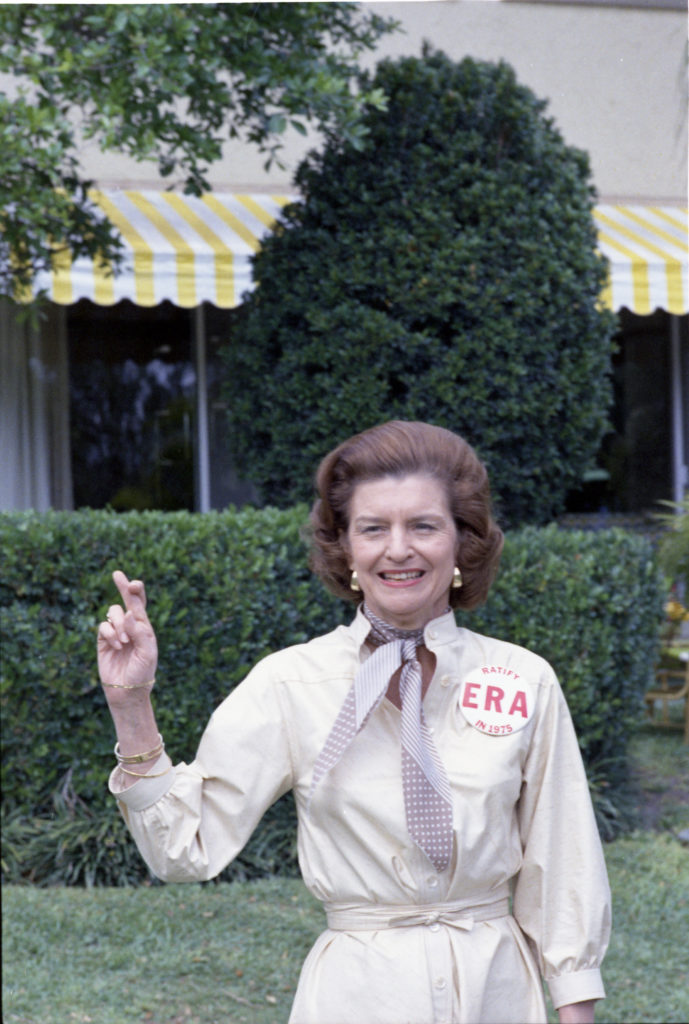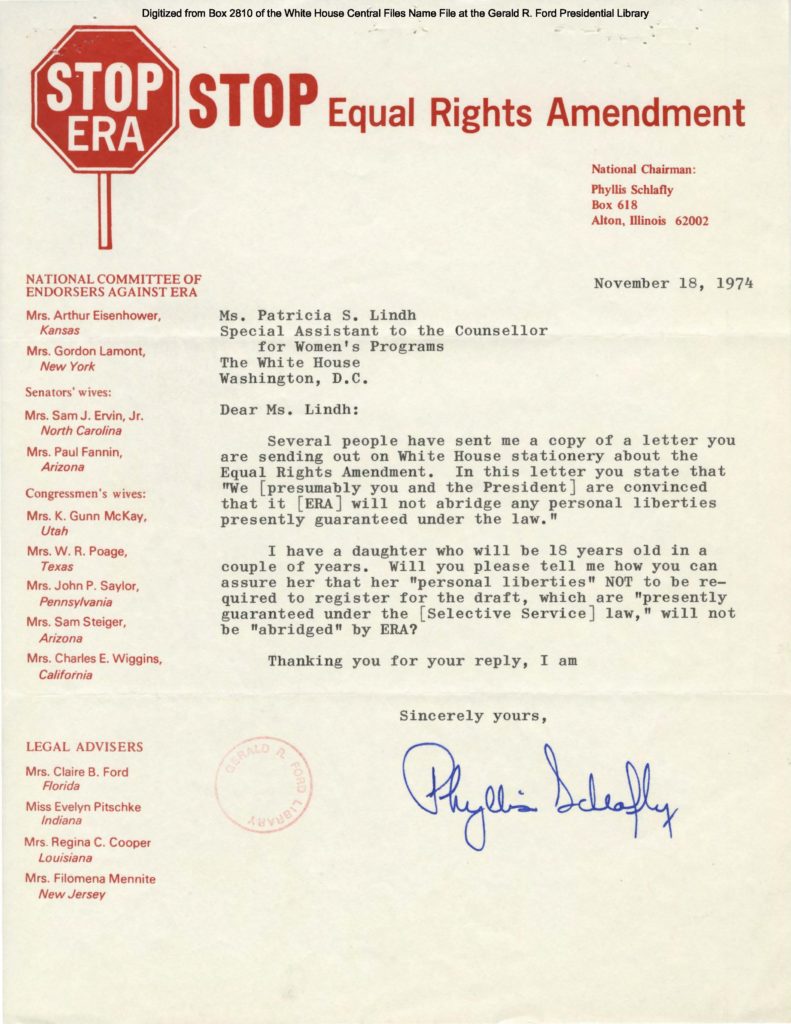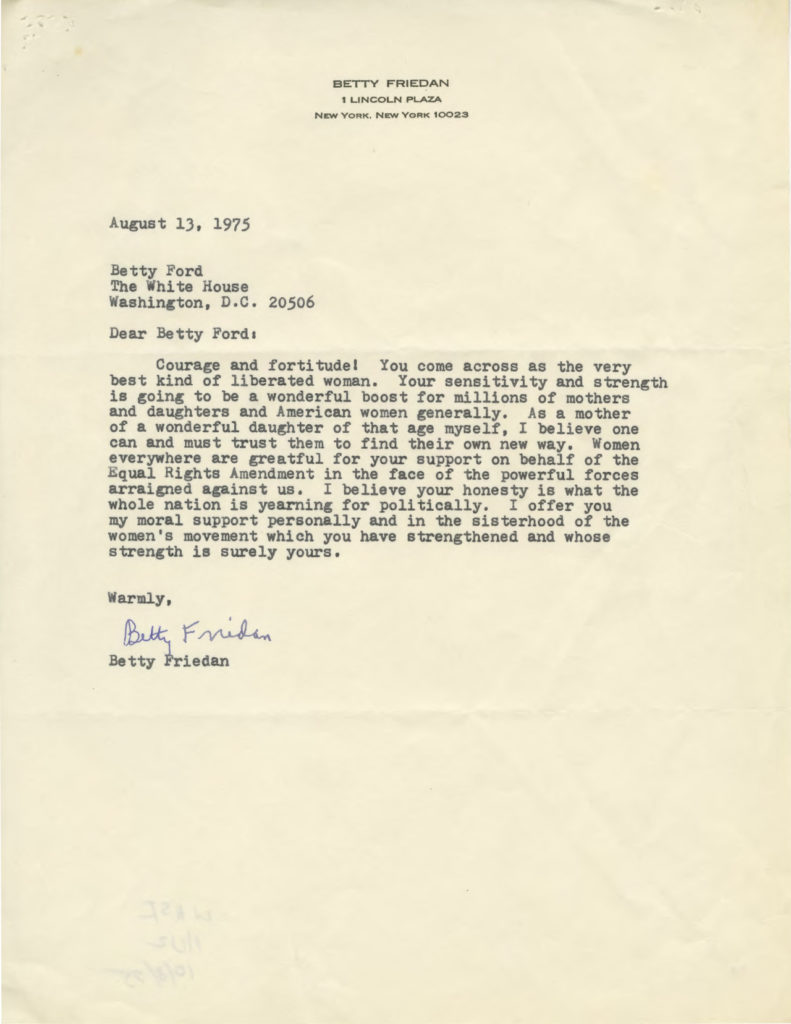After initially being introduced by Alice Paul and Crystal Eastman in 1923, the Equal Rights Amendment (ERA) again gained steam in the early 1970s when both the House and Senate submitted the proposed amendment to the state legislatures for ratification in 1972. Congress included a deadline for ratification of March 22, 1979, wherein 35 states would need to vote for ratification in order for the amendment to become part of the U.S. Constitution.
Betty Ford was an ardent supporter of the ERA. In her memoir, The Times of My Life, Mrs. Ford wrote:
As wife of the Vice President, I was already involved with the Equal Rights Amendment, and when Jerry became President, I kept pushing, trying to influence him. I used everything, including pillow talk at the end of the day, when I figured he was most tired and vulnerable. I championed the idea of women in high places.

A3458-20A / NAID: 5730761
Courtesy Gerald R. Ford Presidential Library
As First Lady, Mrs. Ford would cold-call state legislators to advocate for ratification of the amendment. Mrs. Ford received both criticism and praise for her advocacy work for the amendment. Lisa McCubbin writes in her biography of Betty Ford, “When a group protested that the first lady was using a White House telephone line – suggesting she was using taxpayer dollars to lobby for the ERA – Betty had an outside line installed so she could continue making calls as a private citizen from her ‘home office.’” Here, too, are some special examples of correspondence received by the White House during this time:

Courtesy Gerald R. Ford Presidential Library

Courtesy Gerald R. Ford Presidential Library
Betty Friedan and Phyllis Schlafly were well-known activists with opposing viewpoints. Friedan was best known for her book The Feminine Mystique and served as the first president of the National Organization for Women. Conversely, Schlafly organized the “STOP (Stop Taking Our Privileges) ERA” campaign.
As the deadline approached for the states to ratify the ERA in 1982, Mrs. Ford became the national honorary chair of the ERA Countdown Campaign. Just as she did during her White House years, Mrs. Ford traveled the country and advocated support for the amendment. In the end, ERA was narrowly defeated and did not become law.
Even so, Mrs. Ford’s dedication and support for the legislation was historic and lives on as part of her impressive legacy.
Author: Brooke Clement
